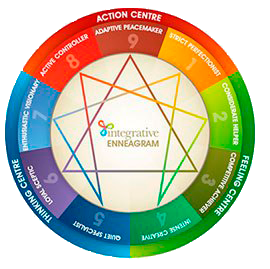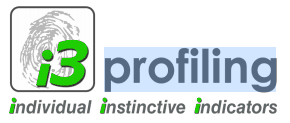“He who knows others is learned. He who knows himself is wise.”
– Lao Tzu
Self-awareness is essential to personal growth both individually and as part of a team.
Daily reflection enhances our ability to grow our self-knowledge. The enneagram, i3 profiling and 360 degree surveys can lead us to different levels of understanding, of ourselves and of others in our team.
Development Tools
Individual Coaching Process
Business leadership coaching process
- Stake-holder meeting, defining organisational goals for coaching
- Intake – Getting to know the client and individual goals
- Baseline Assessment – as agreed with organisation and client
- 6 – 12 Confidential, one-on-one coaching conversations, preferably bi-monthly or as agreed
- Final assessment – feedback to client and development plan
Individual coaching model
- Intake - background and objectives for the coaching programme
- Reflect - brief review of period
- Evaluate - what worked/what didn't
- Formulate goal for session
- Let go of limiting assumptions
- Explore alternatives
- Conceptualise a new way of being
- Tasks and actions to be completed.
Transformative and Integrated Leadership (TaIL)
An “inside-out” and sustainable development programme for teams, TaIL first asks delegates to look within so that they can show up authentically as leaders. Designed as an integrated approach to leadership growth within organisations, the programme combines individual and team coaching to produce leaders who:
- are able to develop a clear view of the future
- develop heightened self-awareness
- have awareness of team members and their motivational needs
- share aligned values, beliefs and sense of purpose
- self-manage and retain focus
- are authentic
And who work as a collaborative and cohesive team with:
- Shared purpose and vision
- Commitment and accountability
- An acknowledgement of complementary skills and strengths
- Interdependence
- Shared authority and ownership
Benefits:
- The programme is modular and therefore adaptable to organisational needs.
- It can be designed around particular challenges within the organisation/team
- The focus is on the development of self-awareness and multiple intelligences required by leaders
- The learning is embodied through practices and sustained through coaching.
Enneagram

"If you do not change direction, you may end up where you are heading." - Lao Tzu
The Enneagram, from the Greek words meaning "nine" and something "written" or "drawn", is a model of nine interconnected personality types. It is the perfect tool to start a journey of self-discovery and the more it is used, the more that the subtlety and complexity of the model is revealed. In business contexts it is generally used as a typology to gain insights into workplace dynamics; In spirituality it is more commonly presented as a path to higher states of being, essence and enlightenment. It has been described as a method for self-understanding and self-development and is a wonderful tool to use for development and transformation. Integrative Enneagram Solutions offers an online assessment of high validity and the feedback report is effective both for individual and team development. For more information please visit: www.integrative9.com
I3 Team Profiling

The i3 profile is a tool that was developed to identify people’s individual instinctive indicators. The assessment is carried out online and takes 20 – 30 minutes making it accessible to millions of people, worldwide.
Every person’s profile is unique to them and the report-back is delivered verbally, ensuring complete confidentiality. By becoming more aware of his/her dominant instinctive indicators, an individual will be empowered to feel more confident in their life and workplace. Constructive and personalised feedback is given on how to use one's strengths to build better relationships and a more effective career.
I3 team profiling
The i3 team profile shows each team member’s indicator mix in relation to every other member in the team. This information is invaluable to managers and leaders in understanding the workforce, how to communicate better to each individual and how to structure the most productive work groups. Areas of potential conflict can also be identified and proactive solutions put into action. Managers are amazed at how this basic awareness improves the overall team dynamic immediately. Once the team profile is in place it becomes extremely useful to profile potential employees to make sure they are the right fit for your team.
I3 role identification
There are many ways that companies assess potential employees for different roles. Most of the decisions are based on academic knowledge, experience and skills that match with the job description. Then 1 or 2 interviews are usually conducted wherein one tries to evaluate whether the prospective employee’s personality will fit into the team or potentially upset the existing team. Sometimes companies get it right and sometimes they don’t – resulting in consequences that are often far-reaching and almost impossible to undo.
The i3 profile provides an informed assessment of the prospective employee, allowing the company to be better equipped to make a decision.team.
I3 career direction
An i3 member is trained to use the i3 role identification tool to provide career guidance to people starting out or looking for a change. The i3 member will also be able to evaluate someone’s fit to a role type or possible position by using i3 role identification.
To learn more about i3 Profiling, please visit the website www.i3profiling.com
Emotional & Social Competence
The emotional & social competence inventory

The ESCI model measures behaviours that contribute to effective performance. It describes 12 competencies that differentiate outstanding from average performers. The ESCI is a multi-rater tool designed to get feedback from managers, peers, direct reports and others, as specified. The feedback package shows participants how others experience their behaviour in terms of how they demonstrate Emotional and Social intelligence. It helps each participant to appreciate their strengths and identify areas for development and this forms the basis for a coaching conversation.
ESCI workshops & coaching
The ESCI survey can be used for individuals along with at least one coaching conversation.
However, the importance of emotional and social intelligence is best conveyed in a workshop for a team. In the event of the participation of a group, a Workforce Audit Report is available.
In both the above cases, the communication prior to the survey should start about 4 to 5 weeks ahead of expected feedback. The survey is completed on-line through The Hay Group website and all communication with the participants and their raters will come from Hay Group.
Each participant will receive a feedback report consisting of the ESCI Model; how to interpret the feedback; Data Validity; ESCI Summary; ESCI Detail; Item Frequency report and Verbatim comments (optional). This report should be accompanied by a coaching session of one hour.
Values, Beliefs and Purpose
Interrogating your principles and values, belief system, world view and purpose allows you to find the correct path. In their book, Moral Intelligence, Doug Lennick and Fred Kiel cited four universal principles which they found to be key to effective leadership and also shared both a survey to test your own “moral intelligence” as well as a tool to find your own purpose.

